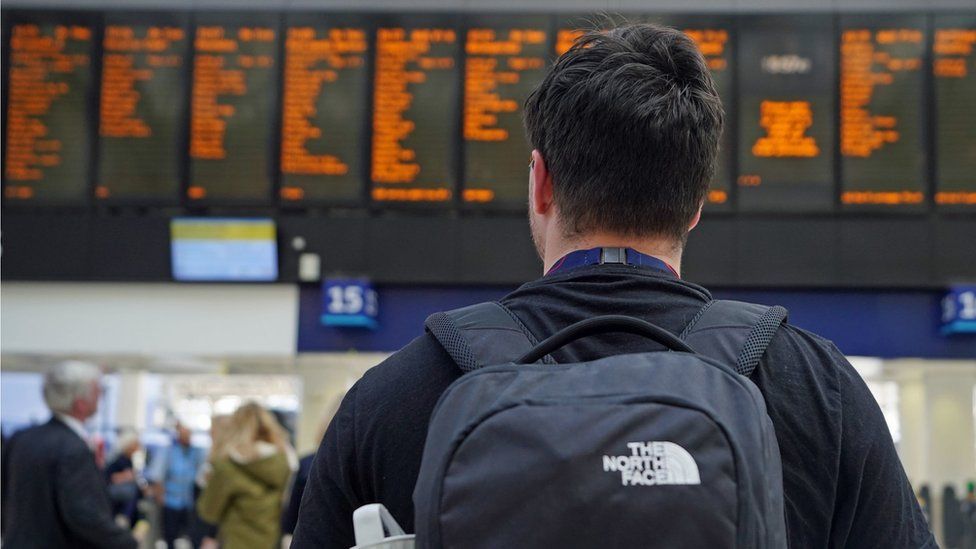ARTICLE AD BOX
 Image source, PA Media
Image source, PA Media
Rail services in the UK will be disrupted on Wednesday as around 9,000 train drivers in the Aslef union take part in another large-scale strike.
The 24-hour walkout, in a row over pay and conditions, will mean no trains on lines run by firms such as Northern, Avanti West Coast and Southeastern.
Others are running limited services, and the rail industry has warned passengers that trains run by unaffected operators will be busy.
Some stations will also be closed.
Journey planners such as National Rail Enquiries have now been updated with the new timetables, detailing how the strike will affect services.
The Aslef strike is the latest in a series of actions, as unions representing rail workers battle the government and companies over pay, job cuts and changes to terms and conditions.
Only train companies directly involved in the strike will be affected. That differs from RMT strikes, which also involve Network Rail signallers and therefore cause nationwide disruption.
However, with 13 train companies involved in Wednesday's action, disruption will still be extensive.
Aslef has timed its strike around the Conservative Party Conference in Birmingham, which ends on Wednesday. It also coincides with several football fixtures.
People with tickets for Wednesday can use them on Tuesday, Thursday or Friday.
The TSSA union also has plans for much smaller scale strikes this week, including CrossCountry on 5 October, Great Western Railway on 6-7 October, and Avanti and c2c on Saturday, 8 October.
The RMT is also staging a further walkout this Saturday.
Daniel Mann, director of industry operations at the Rail Delivery Group, which represents industry operators, said the strikes would hurt passengers, undermine businesses and "further damage the railway's recovery".
Unlike RMT strikes, this action by train drivers doesn't affect the whole of England, Scotland and Wales. That's because Network Rail and its signal workers aren't involved.
However, the number of train companies affected is large. And the impact is severe.
Managers can drive trains on some routes, but some operators can't run anything.
Passengers will be wondering how long strikes will last.
If nothing changes, it seems the answer could be for months to come.
The RMT has already said it will re-ballot members for further strike action, although unions insist they would prefer to resolve the dispute through talks.
Train drivers' union Aslef has made it clear that, although they feel some progress has been made in talks with the group that represents the train companies, they don't believe an agreement is imminent.
Aslef says the train companies involved in this dispute are imposing real terms pay cuts - that is, wages are failing to keep up with rising prices.
The Rail Delivery Group has insisted neither taxpayers nor passengers can be asked to pay more to plug the financial gap left by the pandemic - so reforms must be agreed to afford a pay rise.

 2 years ago
57
2 years ago
57








 English (US) ·
English (US) ·